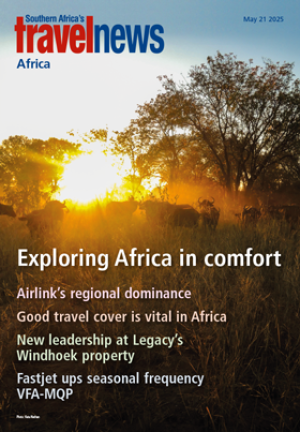THE Department of
Home Affairs has
tightened regulations for
work visas, making it more
difficult for international
companies to relocate their
executive staff in South
Africa.
The rule is part of the new
immigration regulations,
which were officially
introduced in May last year,
and continue to cause
confusion in the travel
industry and corporate
space.
TNW has received reports
that global companies
(such as airlines) now need
to submit a succession
plan, proving that a local
candidate will ultimately fulfil
the role of, for example, gm
or regional manager, before
a work visa is granted.
Immigration expert
and director of Intergate
Immigration, Monya Flier,
says this latest bout of
confusion relates to the Intra
Company Transfer Visa. The
visa was introduced years
ago to make it very easy for
companies to inject critical
skills from abroad into their
South African operation,
she says. At the time, the
permit was seen as an
effective way of fostering
economic growth. “Not all
individuals would be eligible
for this visa – there would
need to be a very particular
kind of relationship in place
between the international
organisation and their South
African operation.”
Perhaps as result of the
visa being overused and
continuous need to bring in
foreign skills, government
has decided to introduce
stricter requirements for the
visa, says Monya. “The visa
requirements communicate
that government is
questioning why, in the time
that the Intra Company
Transfer Visa has been
available, companies have
not been making more of
a concerted effort to grow
local members of staff
into the role. Why have
companies not been making
more of an investment in
their South African workforce
such that it is no longer
necessary to bring in skills
from overseas?”
As a result, companies
wanting to apply for the
Intra Company Transfer Visa
will now need to produce a
Skills Transfer Plan, which
demonstrates how foreign
staff members will invest
back into the local labour
market through skills
transfer to existing South
African staff and how they
are planning to grow a South
African candidate into the
position,” says Monya. “We
will reach a stage where the
Department of Home Affairs
is going to start calling out
companies that fail to meet
these requirements, creating
potential problems for them
and their future reliance on
utilising the Intra Company
Transfer Visa vehicle.”
How companies go about
developing their Skills
Transfer Plan has largely
been left in the company’s
hands and can be put
together in accordance with
its own internal regulations,
adds Monya.
Meanwhile, for those
companies that genuinely
require highly specific skill
sets to take up certain
positions within their
portfolio, there are other
work permit categories
through which they can
operate. These include a
General Work Visa and a
Critical Skills Visa.
Monya says the Critical
Skills Visa is a new and
exciting introduction to the
immigration regulations.
“This visa speaks to
short-staffed professions
possessing skills that we
need in South Africa. It aims
to make the uptake of these
professions in South Africa
more attractive.”
On the list of professions
that qualify for the Critical
Skills Visa is a corporate
general manager. “However,
it’s important to note that
not just anyone can apply
for this permit,” cautions
Monya. “They would first
need to prove they have
the relevant education and
experience to fulfil the role.”
If a General Work Visa
is sought, on applying
to the Department of
Labour for the relevant
recommendation, corporates
would need to provide proof
that they had exhausted
the South African labour
market, making it necessary
for them to draw skills from
other markets.
She points out that, for
corporates operating within
a statutory environment,
the process is even more
complicated. “In these
cases, there are many other
standard South African
legislations to comply
with.” Things are somewhat
easier for those companies
operating in a non-statutory
environment.
Govt clamps down on ‘overused’ work visas
20 Apr 2016 - by Debbie Badham
Comments | 0













